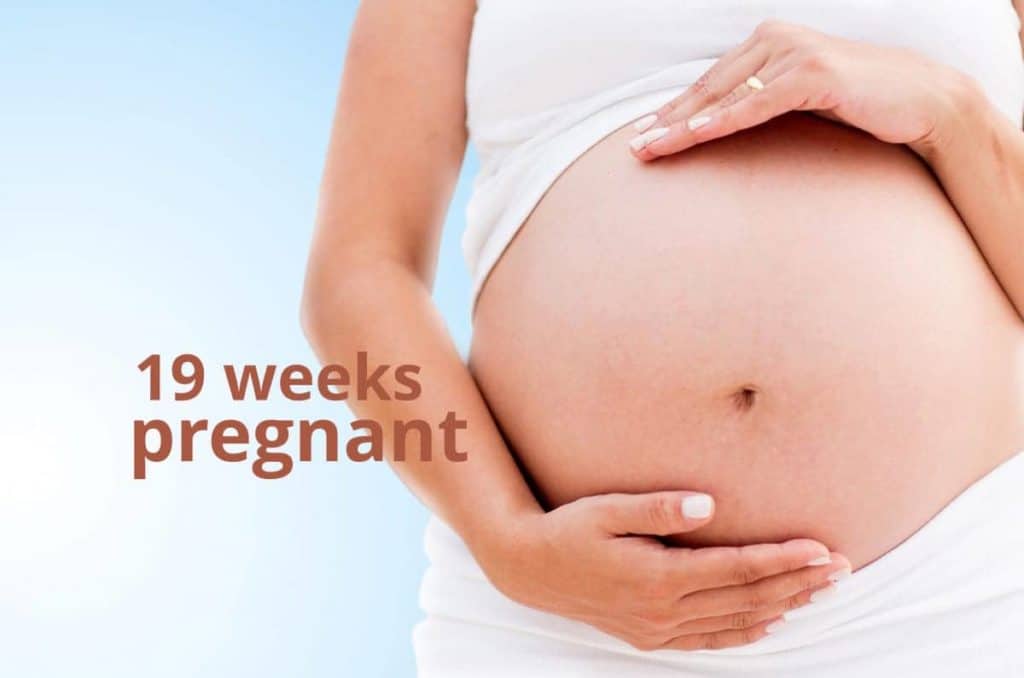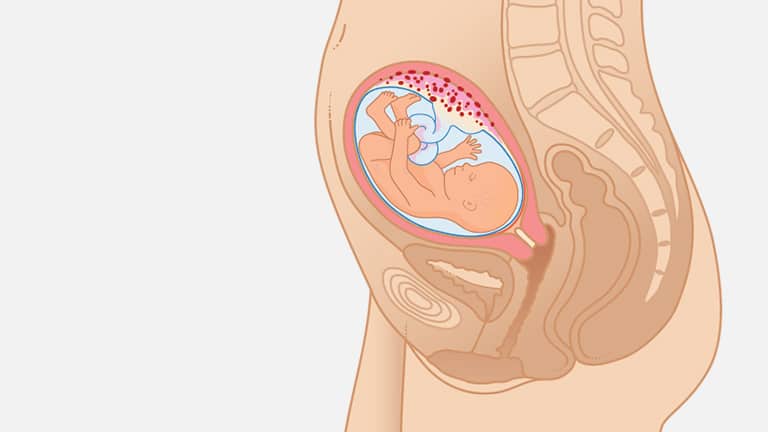
Table of Contents
You’re slowly and steadily progressing towards your dream day when you are 19 weeks pregnant. This week you may experience the surrealness of your baby, as the little one starts moving around and their senses have started to develop also. The weight of your baby is approximately 8.5 ounces. And the size of the overall growth seen is around 6 inches.
19 Weeks Pregnant Ultrasound
During the screening process, various measurements of the baby will be taken, such as the size of the head, abdomen, and bones. These measurements help determine the baby’s precise size and age. Additionally, the ultrasound will check the placenta’s position to ensure it’s not obstructing the birth canal during labor.
So What Else Is Happening To The Baby When You’re 19 Weeks Pregnant?
Your baby is getting ready for the outside world and is being all prepped up in the major areas. Oh, by the way, 19 weeks pregnant in months is 5 months! Let’s see what changes take place in your baby’s development
1. Sensory development:
This week, your child’s brain is beginning to build its sensors for the five senses, sight, sound, smell, taste, and touch—to get prepared for the future. They might even be able to hear the sound as you talk.
2. Body growth:
Baby’s hands and limbs are more equal to the size of the body once you’re 19 weeks pregnant. And hair could also begin to grow on the scalp of your child.
3. Protective coating:
At 19 weeks pregnant your fetus develops a smooth, protective layer called vernix caseosa or cheesy varnish. This helps protect babies from wrinkles in the amniotic fluid. It can also enable the infant to work its way through the birth canal during childbirth and also has antibacterial qualities. Most of the protective layer may flake when they are born, but many children make their arrival with it on their skin or in their membranes. That’s natural. There appears to be more vernix caseosa in infants born earlier, but it often occurs in full-term infants. And there are typically fewer babies born past their delivery date with less of that membrane.
4. Fingerprints
The skin on your baby’s little fingers and toes has developed its own one-of-a-kind patterns. These tiny fingerprints and toeprints are here to stay and are completely special, even if you have identical twins!
5. Vernix Caseosa
Your baby’s skin is now developing a protective layer known as vernix caseosa, which appears as a creamy, white substance. Vernix serves several important purposes for your little one: it keeps their skin safe and well-hydrated, shields against harmful bacteria, and aids in the growth of their lungs and digestive system.
19 Weeks Pregnant Symptoms: What Happens To You When You’re 19 Weeks Pregnant?
Now that you’re far into your second trimester, you might be beginning to feel—truly pregnant. And although the morning sickness and exhaustion of the first trimester are (let’s hope) in the past, you may experience a few more new symptoms.
1.Dizziness:
Dizziness and/or faintness is normal in pregnant women during the second trimester, as your expanding uterus will place tension on your blood vessels and slow down your blood flow. The reality that your blood pressure continues to drop when you’re pregnant is not a great thing. If you are feeling lightheaded, drop what you’re doing and lie down to boost blood circulation properly.
Other stuff that can benefit when you’re 19 weeks pregnant: tend not to stand up for a while, and be convenient to stand up in a relaxed way. Falling asleep on your side will also help to regulate the blood flow maximum. And if there’s a lot of dizziness going on, let your healthcare professional know.
2. Leg cramps:
If you wake up at night with leg cramps, you’re not the only one! To relieve the pressure, try to stretch your calf muscles frequently and wear comfortable shoes or supportive socks.
3. Aches and pains:
Due to your developing uterus, when you are pregnant for 19 weeks, round ligament discomfort can be your case. This abdominal pain can be caused by all the expansion that’s going on to catch pace with your baby’s development. Of course, any pain should be conveyed to the doctor, but abdominal pain at this stage can also be literally the pain cause of the increasing parts.
4. Skin Changes
Do your hands have a reddish tint? This can be due to increased estrogen levels. You might also notice patches of darkened skin on your upper lip, cheeks, and forehead, a condition known as melasma or the “mask of pregnancy.” During pregnancy, hormones affect the cells responsible for skin pigmentation, which can lead to darkening of areas like your nipples, scars, freckles, underarms, inner thighs, and vulva. Additionally, you might see a dark line starting from your belly button and ending on your pubic bone, called the linea nigra or “dark line.” The good news is that these changes in skin color typically fade after pregnancy.
What Does Your 19 Weeks Pregnant Belly?

Your belly is likely to grow quickly after 19 weeks, as the uterus no longer fits within the pelvis. You’re currently gaining about a pound a week and based on what you’ve discussed with your healthcare professional, you’re likely to want to adhere to that amount for the remainder of your pregnancy.
Your 19-week pregnant belly could either be showing off a prominent “pop” or just sporting a small bump. As your baby grows, your belly will keep expanding along with your uterus, creating more room for the little one. By the time you reach the 5-month mark, your uterus might reach as high as your belly button.
Finishing Lines
As the time of your delivery comes nearby, you need to be completely prepared to welcome your precious. Also, we would suggest you create a maternity bag for the time of the labor, this bag would have all the essentials you would need on the go to the hospital. If you arrange everything properly then whenever the time comes for you to rush to the hospital, you can easily proceed without any haste.






